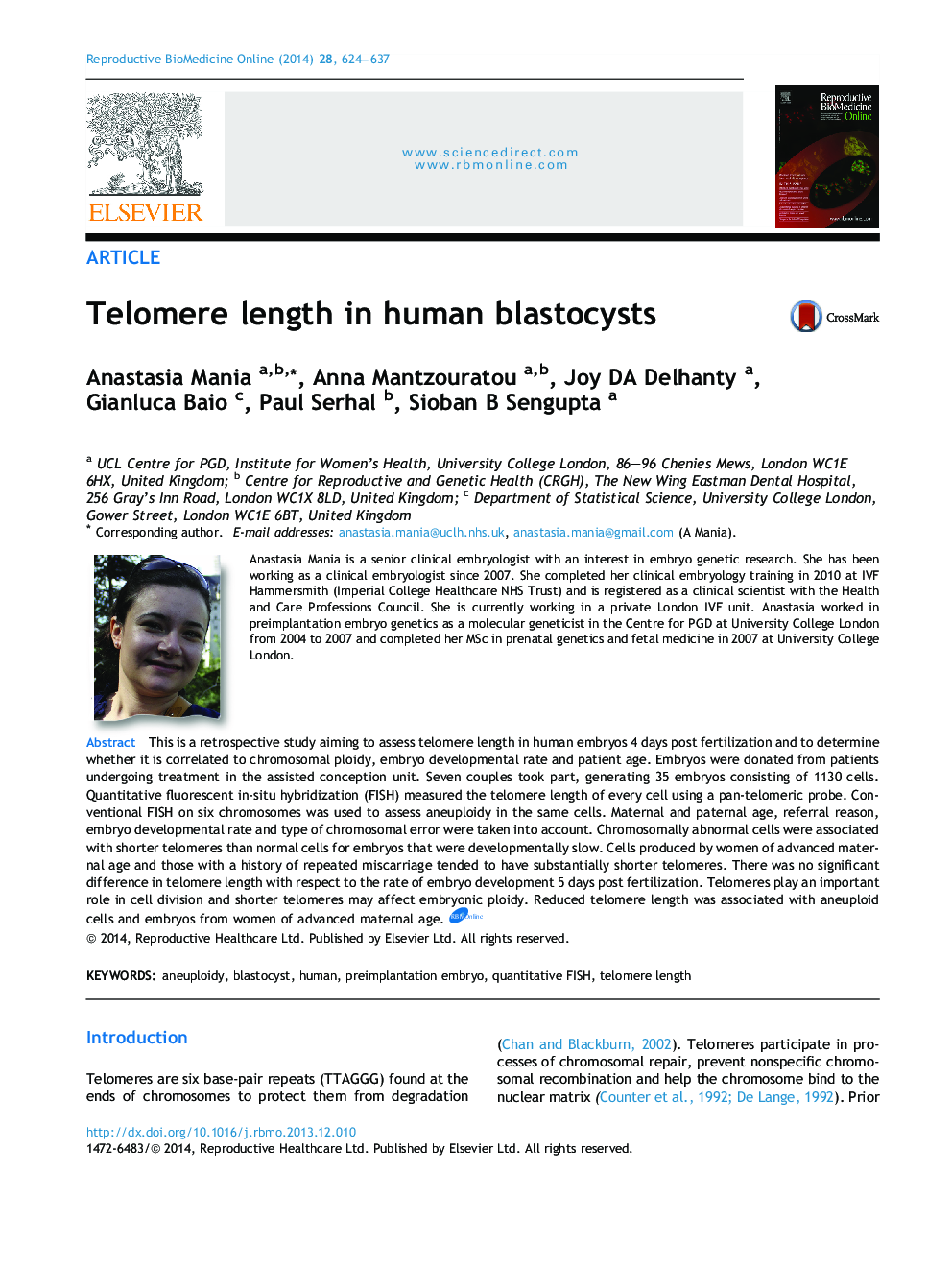| Article ID | Journal | Published Year | Pages | File Type |
|---|---|---|---|---|
| 6189049 | Reproductive BioMedicine Online | 2014 | 14 Pages |
Abstract
This study assessed telomere length in human embryos 5Â days post fertilization. Telomeres are found at the ends of chromosomes and protect them from degradation. Many embryos cultured in vitro are not able to implant to the maternal womb for reasons that are not always understood. We were, therefore, trying to determine whether the telomere length in each of the embryo cells affects its chromosomes and embryo development and/or is affected by patient age and reproductive history. Embryos were donated from patients undergoing treatment in the assisted conception unit. Seven couples took part, generating 35 embryos consisting of 1130 cells. The telomere length of all chromosomes was established in each embryonic cell. Six chromosomes mostly found abnormal in embryos that fail to implant, miscarriages and stillbirths were investigated in terms of whether they had the correct number. Maternal and paternal age, reproductive history, embryo developmental rate and type of chromosomal error were taken into account. Chromosomally abnormal cells had shorter telomeres than normal cells in embryos that were developmentally slow. Cells produced by women of advanced maternal age and those with history of repeated miscarriage tended to have substantially shorter telomeres. There was no significant difference in telomere length with respect to the rate of embryo development 5Â days post fertilization. Telomeres play an important role in cell division and shorter telomeres may affect embryo development and implantation. Reduced telomere length was associated with aneuploid cells and embryos from women of advanced maternal age.
Related Topics
Health Sciences
Medicine and Dentistry
Obstetrics, Gynecology and Women's Health
Authors
Anastasia Mania, Anna Mantzouratou, Joy D.A. Delhanty, Gianluca Baio, Paul Serhal, Sioban B. Sengupta,
